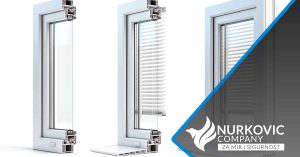You must have experienced unpleasant experiences with noise when you went to sleep or to rest. To avoid such experiences, discover how sound insulation and its application affects the quality of your life. In order to better understand how sound insulation can improve the quality of our life, we need to understand how noise affects us in the first place.
What do you consider noise?
Noise is defined as an unwanted sound or combination of sounds that has harmful effects on health. These effects can manifest in the form of physiological damage or psychological damage through different mechanisms. Chronic exposure to noise can cause permanent threshold shifts and hearing loss in certain frequency ranges.

Noise-induced hearing loss is considered to be one of the leading causes of preventable hearing loss. Approximately 10 million adults and 5.2 million children in the US already suffer from irreversible noise-induced hearing damage, and another thirty million are exposed to dangerous levels of noise every day.
Noise-induced hearing loss
Noise-induced hearing loss is usually defined as hearing loss that develops slowly over a long period of time (several years) as a result of exposure to continuous or intermittent loud noise.
This results in bilateral, sensorineural hearing loss, often with a pathognomonic notch of decreased hearing on the audiogram at 4,000 Hz. Continuous exposure to sounds greater than 85 dB for 8 hours has been proven to cause hearing loss. Furthermore, when the exposure is constant, the damage increases compared to occasional exposure to noise of a similar intensity.

Physiological response to noise
Noise can have a more global effect on human physiology and affect multiple non-auditory systems such as cardiovascular, neuroendocrine, and psychological. Quantifying the non-auditory effects of noise can be difficult due to the lack of strong scientific evidence, and statistical evidence is lacking, as there are often plausible alternative explanations for the results.
You can close your eyes, but your ears are always open, a persistent noise in your head can permanently affect your health. In addition, noise causes stress. The normal noise level in the house should not exceed 34 decibels. But not everyone lives in idyllic silence, especially in urban residential areas, the main sources of continuous noise are road, rail, and air traffic and recreational facilities outside the noise penetrates through the facade where the least resistance is offered. In many ways, the older window represents a weak point not only as far as the glazing is concerned, but also the performance of the woodwork installation.
Acoustic stress can have far-reaching consequences. For example, poor concentration, cardiovascular diseases, depression, insomnia, and learning disabilities in children. Insulation in the house is therefore a key issue, after all, your own home should be a haven of peace. A place where you will be able to escape from the turmoil and noise. The sound reduction index is a measure of how effectively each of the components can prevent noise.
Sleep disturbance and cognitive impairment
Noise can cause sleep disturbances and consequent adverse health effects and a perceived decrease in quality of life. Noise can cause immediate or secondary extra-aural effects. The number and duration of night awakenings can quantify the immediate effect of noise on sleep. Night awakenings usually occur with noise levels greater than 55 dB.
The time needed to fall asleep can increase up to 20 minutes with a peak noise level of 45 dB. After about 5 hours of sleep, the threshold for awakening becomes lighter and noise can cause frequent early morning awakenings. The secondary effects of noise on sleep are the subjective feeling of reduced sleep quality, tachycardia, increased stress hormones (as discussed previously), and increased cognitive impairment.
These are just some of the evidences that stand out as unwanted environmental pollutants that have global implications. In our industrially developed society, the daily exposure of the population is significant with its results on health and later significant economic burdens.

KÖMMERLING system sound insulation
KÖMMERLING windows have outstanding sound insulation whether they are double or triple window and door systems. Quality materials, and premium glass are only part of what makes the sound insulation of the KÖMMERLING system extraordinary.
Effective noise protection starts with competent advice, and first becomes perfect when properly installed. Finally, you can enjoy real peace and quiet only when the elements are correctly and correctly placed in accordance with the requirements for each of the sound transmission classes. Windows with a high sound insulation factor are also heavy and require a lot from the design of their frames. Static properties, stability, and tensile strength must be adequate.
Also, windows and walls must form a clean and tight seal. Only then can sound insulation measures be successful and make a key contribution to protecting your health. Leave your trust and sound insulation measures in the hands of professionals. Your local expert can offer you comprehensive advice on noise protection free of charge.
Visit our website.




